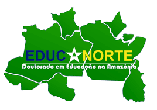Banca de DEFESA: NARA CLAUDIA ALVOREDO DA CRUZ
Uma banca de DEFESA de DOUTORADO foi cadastrada pelo programa.STUDENT : NARA CLAUDIA ALVOREDO DA CRUZ
DATE: 21/12/2022
TIME: 15:30
LOCAL: Universidade Fernando Pessoa
TITLE:
Reading Proficiency in Basic Education in Brazil and Portugal: a comparative analysis based on the results of the International Student Assessment ProgramKEY WORDS:
PISA; Reading in Brazil and Portugal; Public policy.
PAGES: 123
BIG AREA: Ciências Humanas
AREA: Educação
SUBÁREA: Planejamento e Avaliação Educacional
SPECIALTY: Avaliação de Sistemas, Instituições, Planos e Programas Educacionais
SUMMARY:
This study discusses the comparative visualization of the performance of Brazilian and Portuguese students in reading literacy in PISA assessments. The two countries operate the results as instruments for measuring educational quality. Between 2009 and 2018 we considered the time frame in this investigation. The research aimed to analyze the relationship between the PISA results in reading literacy in Brazil and Portugal, with the processes of educational improvements related to reading, in these countries. Data collection, in Brazil, covered consultations available on public portals, from Inep (official PISA reports), from QEdu Redes (Brazil), on the website of the School Census, the Federal Constitution of 1988, IBGE, LDB/96 , the PNE/2014 and in Portugal, the Ministry of Education and Science, the IAVE (official PISA reports), the OECD and others. It is an exploratory research (Gil, 2002), with bibliographical methodology. Theoretically, to reflect on reading and its different conceptions, we rely on Koch (2009), Elias (2009), Marcuschi (2008), Pelandré (2005), Carvalho (2011), Ferreiro (2010), Solé (1998) , Kleiman (2000; 2003), Geraldi (1997; 2006), Freire (2003), Soares (2008; 2009) and others. The option for the comparative method is justified because comparative education promotes an evaluative and prospective nature, favoring a more efficient identification in comparison of objects (Ferreira, 2008). We found that both Brazil and Portugal advanced in the scoring of reading scores in 2009 and 2018. We evidenced that the results of the last PISA, in Brazil, half of the evaluated students still did not reach the basics for reading comprehension, about 50% are in the level 2 of the reference matrix and in Portugal, 80% of students reach at least level 2 and with clear advances towards level 3. Brazil's reading score in this cycle reached 413 points, remaining below the students' score of the OECD with 487, presenting a difference of 74 points. Portugal obtained 492 points, surpassing the OECD students' score by 5 points. It was concluded that Brazilian public policies and PISA results have a fragile relationship with the improvement of Education; Public policies in Portugal have contributed to educational qualification. Further studies of comparative analyzes between countries participating in PISA on student performance in reading are suggested.
COMMITTEE MEMBERS:
Externo ao Programa - 324704 - EDILAN DE SANT ANA QUARESMA - UFOPAExterno ao Programa - 1153153 - ANSELMO ALENCAR COLARES - UFOPAExterno à Instituição - JOSE MANOEL SANCHES DA CRUZ - UFT
Externa à Instituição - ANA MARIA ANJOS ROMBA RODRIGUES DA COSTA
Externa à Instituição - MARIA INES MARTINS GOMES DE VASCONCELOS




